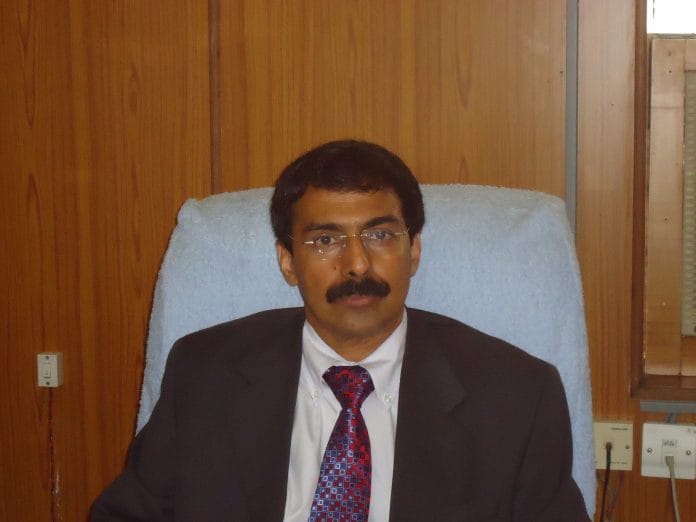M.S. Shashikala, woman at the centre of latest judiciary-executive tussle, says Karnataka judge P. Krishna Bhat’s behaviour triggered ‘rumours & questions’.
New Delhi: M.S. Shashikala, the woman judicial officer whose complaint has triggered the latest face-off between the Supreme Court collegium and the central government has alleged that the aspirant high court judge at the centre of the controversy took “undue advantage” of the fact that she was unmarried, and repeatedly forced her to visit his home “during late night hours”.
In her 15-page complaint, dated 3 June 2016, to the Chief Justice of India, Shashikala said Karnataka district and sessions judge P. Krishna Bhat repeatedly harassed her.
Bhat is among the candidates recommended by the Supreme Court collegium for elevation as a high court judge. When the recommendation was first made, the government returned it in light of the woman judicial officer’s complaint. Former CJI T.S. Thakur subsequently asked the then-Karnataka High Court chief justice, Subhro Kamal Mukherjee, to conduct an inquiry.
The inquiry found the complaint to be without basis, following which the Supreme Court reiterated its recommendation for Bhat’s elevation. But the government is yet to act on it, despite the fact that under the memorandum of procedure, the Centre has no option but to process the case once the collegium reiterates a recommendation.
But the government has cited the complainant’s allegations against Bhat and “the absence of a proper inquiry” as justification for its decision.
‘Harassment and threats’
In her letter to the CJI, the woman judge cited at least four specific instances of alleged harassment by Bhat, saying he had “threatened me with dire consequences” if she did not “oblige”. Shashikala was posted in Belagavi when the alleged harassment took place.
According to her, in February 2014, Bhat sent her a message “to secure my presence at his home at about 10 pm, asking me to come alone”. When she refused, she said a male colleague came to her house and forced her to go to Bhat’s house, from where she was not let off until midnight.
In April and August 2014, Bhat allegedly again called her home on different pretexts, getting her to stay till 2 am on one day and 2.30 am on the other. Bhat, she said, made her stay “only with an ill intention”.
She added that Bhat’s behaviour led to “rumours” and “questions” among colleagues and advocates. “My parents have also received phone calls from several persons and questioned about the rumours,” she said. This, she added, affected her personally as well as professionally, and caused her “great humiliation, including my family members (sic)”.
When she stopped going to his house on her parents’ advice, he began to harass her by delaying or not doing regular work, she claimed. He also allegedly threatened to personally attack her by submitting unfavourable remarks in her confidential reports.
In 2015, the complainant was transferred to Channarayapattana in Hassan district. But the harassment, she alleged, continued, with Bhat “submitting false reports and recommendations to disrepute me in society”.
Reached for comment by ThePrint, Shashikala said: “I have not filed a false complaint, that is all I can say.”
Bhat’s office said he would not speak to the media on the issue.
Where the case stands
The government has written to Chief Justice of India Dipak Misra, saying the “complaint of sexual harassment” against Bhat was not handled in keeping with the guidelines laid down by the Supreme Court. The government said that the case ought to have been examined by a sexual harassment committee headed by a woman judge in accordance with the Vishakha guidelines.
The Supreme Court collegium says it assessed the complaint through a “discreet inquiry” before recommending Bhat’s elevation, but the complainant claims she was never approached for any inquiry.
When Karnataka chief justice Dinesh Maheshwari, at the government’s suggestion, launched a fresh inquiry into the matter recently, the reason cited was that his predecessor had neither called Bhat nor Shashikala to testify during his investigation. Sources subsequently told ThePrint that former CJ Mukherjee didn’t need to call either, as he based his report on facts that were readily available. The fresh inquiry has since been junked.







Krishna BHAT ,,,,,low Character has Been appointed as Judge..
Now I feel that so called liberal n anti modians have double standard with respect to allegations of woman,why they are adamant for appointment of a judge who is not found to be innocent is some thing suspicious.this show how the top court bosses want dictatorship in the name of independency inthe matter of judiciary. I wonder why govt did not come in open with facts n against attacks by these dictators
I don’t understand who is in a hurry to promote an accused judge. Let that case be registered and detailed enquiry take place and let’s give more dates and let’s prove the fact justice delayed is justice denied. Let all the judges understand the pain of a common man. Finally let the justice prevail and if found unfit don’t promote. There is no smoke with out a fire.
Transparency and fairness in judiciary is very important. Corruption in justice delivery system is in public domain now. Sanitization of the whole Judicial system including appointments is the need of the times. For judicial appointments, constitution of Indian Judicial Service similar to the Indian Civil service is the need of the hour.
The tussle between judiciary and executive has lead to the shortage of judges in Karnataka High Court, seriously affected the Litigants.
This justification of ‘discrete enquiry’ is either courts do not fall under ‘workplace’ category or Vishakha guidelines do not apply to high and might lordships.